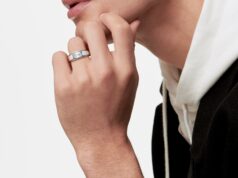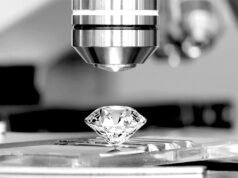It can be hard to determine exactly how much water you need to drink, so most people make it up as they go. If you’re thirsty, drink. If you’re not, don’t. But in reality, there’s no one-size-fits-all answer to how much water you should be drinking.
The water that you drink is one of the most important things you can eat for your health. And yet, we don’t talk about it enough. We don’t have to. Here are some tips on how much water you should drink, why the water is so important, and why there’s more to the water than just staying hydrated.
Despite their mythic folklore, myths about the fountain of youth, Holy Grail of drinkable youth, and the fountain of youth that can restore life and youth are still floating around in our population. While there is an abundance of conflicting information, there is one thing that most of the information agrees upon: Water is essential for life.
Tens of thousands of people query Google every month:
“How much water should I drink?” says the narrator.
Google then directs them to articles that run like this:
“Most individuals are dehydrated and don’t even realize it.”
They warn of headaches, constipation, foul breath, and other symptoms of dehydration. They also urge you to drink plenty of water to avoid drying up like a sad raisin.
In fact, the answer to the question “how much water should I drink?” is very brief and straightforward:
Drink something if you’re thirsty. Don’t be concerned if you aren’t thirsty.
Sooo… Why doesn’t this story come to a close right now?
There are a few exceptions, after all.
(Perhaps you are one of the exceptions.) If you’re an athlete or exerciser, pregnant, or over the age of 65, feel free to skip ahead.)
Plus, I’m assuming you don’t realize how easy it is to keep hydrated.
So let’s go through how much water you should drink as a group.
Do you want to know what to drink?
Download our full liquid nutrition guide. You’ll discover:
- That you don’t have to give up your favorite beverages in order to improve your health and nutrition.
- Whatever your starting point, here’s how to create beverage choices that fit your lifestyle, taste preferences, and objectives.

Here’s where you can get your FREE ‘What Should I Drink?!’ PDF guide.
Consider this graphic resource the simple solution to any drink-related query you (or your customers) have ever had.
What is the purpose of water?
It’s possible you’ve previously heard:
More than 60% of your body is made up of water.
It utilizes that fluid for both the obvious (blood, sweat, and tears) and the less apparent (controlling body temperature, assisting hormone production, and preventing your brain from crashing into your skull during burpees).
Chronic dehydration may put you at risk for a variety of issues that no one wants: kidney stones, urinary tract infections, and poor cognitive and physical performance, to name a few. 1
However, there is a distinction between chronic dehydration (constantly being slightly dehydrated) and acute dehydration (which is more severe, and requires timely intervention).
The majority of individuals do not suffer from persistent dehydration.
When I conduct seminars, I often go through client case studies and ask the audience for their suggestions.
Someone always raises their hand and says, “The first thing I’d do is get them to drink more water.”
“Why?” I inquire.
“Well, most individuals are dehydrated,” they say at that point.
This is a misunderstanding. According to the National Health and Nutrition Examination Survey (NHANES) of the Centers for Disease Control and Prevention, the typical American adult comfortably meets—and even exceeds—their water requirements. 2
Thirst is, in fact, a very dependable sensation.
Most people are like Charley, my new pet.

Isn’t Charley adorable? She isn’t dehydrated either.
Charley simply drinks when she’s thirsty and doesn’t need any extra formulae or computations.
Similarly, our thirst sense performs well.
A part of our brain, called the lamina terminus, monitors blood volume and blood osmolality (the ratio of salt to liquid), among other factors, to determine whether the body needs more or less fluid. If blood volume drops and osmolality rises, the brain turns up that dry feeling in our tongues and throats.3
Over 150,000 health & fitness professionals certified
Save up to 30% on the leading nutrition education curriculum in the business.
Gain a better grasp of nutrition, the authority to teach it, and the capacity to convert that knowledge into a successful coaching business.
Find Out More

How much water will you require?
Humans need about 3 liters (101 ounces) of liquids per day, but this varies from person to person.
About 34 ounces (1 liter) of it will likely come from meals, depending on a person’s diet, particularly if they’re consuming watery things like vegetables, fruit, prepared oatmeal, or yogurt.
The remaining 2 liters (67 ounces) must come from drinks.
So the ancient adage of drinking eight cups of water a day (equivalent to 64 ounces) is really a fairly decent general guideline.
However:
The amount of water you need is determined by a variety of variables, including your age, weight, health condition, and degree of exercise, to mention a few. You may require less than 3 liters if you’re tiny and inactive. You’ll need more if you have a bigger physique and workout in a hot, humid area.
That’s why thirst is usually a better indicator than pushing oneself to drink a certain amount.
Unless you’re an athlete, old, or pregnant, of course.
Is it true that coffee dehydrates you?
Caffeine boosts fluid production somewhat, which should come as no surprise to anybody who has ever had a cup of coffee before flying. (You’re welcome, airport cappuccino.)
Those additional visits to the bathroom, on the other hand, do not always result in dehydration.
In one experiment, males were given the option of drinking four cups of coffee or four cups of water.
Despite producing significantly more pee over the course of 24 hours, coffee users were no less hydrated than water drinkers. 4 Cola was shown to have the same effect in other studies. 5
Bottom line: A cup of coffee, tea, or cola will hydrate you just as much as a glass of water.
(See All About Coffee for additional information on the benefits and drawbacks of coffee.)
What is the recommended amount of water for athletes and exercisers?
While your thirst mechanism works well while you’re at rest, it doesn’t operate as effectively when you’re active.
This has been known since the 1930s, when researchers in Boulder City, Nevada, challenged a man and a dog to travel slightly under 20 miles (32 kilometers) in the 104°F (40°C) heat. Both the guy and the dog had unlimited access to water. Only the dog was well hydrated in the end. The guy, on the other hand, lost about 6 pounds (3 kilograms) of body weight due to water loss. 6
According to research, when individuals engage in strenuous activity and depend only on thirst, they tend to drink insufficient liquids, replenishing only about half of what they lose. 7
When people exercise vigorously in a hot, humid climate, they may lose 1-2 percent of their body weight rapidly. That’s enough to increase your heart rate, body temperature, and sense of exertion. 8 It will also slow you down if you are doing cardiovascular exercises like cycling. 9
On days when you exercise, drink at least 3 liters (101 ounces) of liquids in addition to the liter you receive from meals.
This is how it breaks down:
- Before and during exercise, drink 1 liter (34 ounces).
- After exercise, 1 liter (34 ounces)
- Throughout the day, drink 1 liter (34 ounces) of water, with 1-2 cups of water with each meal.
Of course, you lose more than simply water during long-duration and/or severe activity. This contains sodium, potassium, and other electrolytes, all of which must be replenished. You run the danger of hyponatremia if you don’t (sodium deficiency).
For activity lasting more than an hour in extreme heat and/or humidity, or more than two hours in any condition, drink an electrolyte beverage (such as a sports drink) instead of plain water.
During pregnancy, how much water should you drink?
When you’re developing into a person, your blood volume expands, increasing your total fluid requirements.
As a general guideline, you should drink around 1 liter (34 ounces) more water during pregnancy than you did previously. Check your urine if you’re not sure whether you’re receiving enough. (For further information, see Are you Hydrated? below.)
You’re probably not drinking enough if your pee is black. You’re doing well if it’s light to clear.
How much water should senior citizens consume?
Dehydration is common among the elderly when they are hospitalized to the hospital.
That’s possibly because our thirst mechanisms don’t function as well as they used to as we grow older. Our kidneys don’t either. Certain medicines may also cause an increase in urine production. Plus, our bodies don’t appear to be able to retain as much fluid as they once did. 10
All of this raises our chances of dehydration.
If you’re 65 or older, you should:
- Over and beyond your thirst, drink an extra 8 to 16 ounces (.25 to.5 liters) of liquids.
- Drink anything you want, whether it’s an electrolyte drink, iced tea, or diet cola. (Read Should You Drink Diet Soda?) for more on why hydration is more essential than artificial sweeteners.
- If your urine is bright yellow or darker, you should drink more. (For further information, see Are you Hydrated? below.)
- Dehydration symptoms include dark urine, tiredness, dizziness, headaches, and a dry mouth.
To lose weight, how much should I drink?
Researchers discovered that drinking water may boost calorie burning in a series of experiments a few years ago. 11 and 12
However, the researchers estimated that drinking an additional 2 liters (67 ounces) of water would only increase energy expenditure by 96 calories.
That’s approximately the same amount of calories as a medium banana.
Perhaps you’re thinking: Doesn’t water, at the very least, help individuals eat less by dulling their appetite?
It might.
Drinking half a liter (16 ounces) of water before meals helped individuals eat less and lose weight, according to one research. 13
Drinking tiny sips of water in between mouthful can also help you eat more slowly. (In fact, eating slowly is one of the most effective methods to control your food consumption.) (For additional information, see How Slow Eating Can Transform Your Body.)
How to Estimate Your Water Requirements
What methods do you use to keep yourself hydrated?
There are two choices available to you.
Option 1: When you’re thirsty, drink.
This super-easy choice is suitable for the majority of individuals, including:
People who live in temperatures that are chilly to mild
People under the age of 65
Non-athletes are those who do not participate in sports.
Option #2: Keep an eye on your pee.
Acute dehydration affects certain individuals on occasion.
When you have food sickness or an illness, a lot of material comes out of both ends. Alternatively, while exercising vigorously in a hot environment.
It’s not a huge issue as long as they replace what they’ve lost.
How can you tell whether you’ve replaced all you’ve lost?
The solution is to inspect your toilet.
The higher your urine osmolality, the more dehydrated you are (saltiness).
Fortunately, you can also determine osmolality by looking at the color of your urine: the higher the osmolality, the darker the pee.
If you compare the color of your urine to the chart below (see “Are You Hydrated?”), you’ll receive an answer that’s nearly as accurate as an expensive hydration test performed in the office by your physician or trainer. 14
This is the best choice for:
People who live in hot, dry climates and are concerned about dehydration
People whose professions make it impossible to drink on demand (such as a healthcare worker who wears a mask for a 12-hour shift)
Moderately active people who live in hot and/or arid climates
People who are expecting a child
People in their sixties and seventies
Are you well hydrated?
To determine your hydration level, use this chart.
The colors imply that you peed in a cup.
If you don’t want to do that (and who doesn’t? ), simply assume that the toilet water will dilute the color of your pee by one or two colors.

In conclusion, you’re probably doing well.
With the limitations listed above, you may go on like my pet Charley in terms of hydration.
When you’re thirsty, drink, but not from the toilet.
References
To see the information sources mentioned in this article, go here.
1. Kavouras SA. Are we barking up the wrong tree when it comes to hydration, dehydration, underhydration, and optimum hydration? 2019 Mar;58(2):471–3. Eur J Nutr. 2019 Mar;58(2):471–3.
The CDC stands for the Centers for Disease Control and Prevention. Daily Water Intake Among Men and Women in the United States, 2009-2012.
Neural pathways underpinning thirst and fluid balance, Zimmerman CA, Leib DE, Knight ZA. 2017 Aug;18(8):459–69 in Nat Rev Neurosci.
4. Jeukendrup AE, Killer SC, Blannin AK A counterbalanced cross-over research in a free-living population found no indication of dehydration with moderate daily coffee consumption. 2014 Jan 9;9(1):e84154. PLoS One.
Hydration Status during a 24-Hour Period Is Unaffected by Ingested Beverage Composition, Tucker, Matthew A., et al. pp. 318–27 in Journal of the American College of Nutrition, vol. 34, no. 4, Mar. 2015.
6. Dill, Dill, Dill, Dill, Dill, Dill, Dill, Dill, Dill, Dill, Dill, Dill, Dill Heat dissipation mechanisms in humans and dogs. The American Journal of Physiology-Legacy Content was published on March 31, 1933. https://journals.physiology.org/doi/abs/10.1152/ajplegacy.1933.104.13.6
Drinking Strategies: Planned vs. Thirsty Drinking, RW Kenefick, RW Kenefick, RW Kenefick, RW Kenefick, RW Kenefick, RW Kenefick, Sports Med. 48(Suppl 1):31–7, Mar 2018.
Ageing Attenuates the Effect of Extracellular Hyperosmolality on Whole-Body Heat Exchange during Exercise-Heat Stress, by Robert D. Meade et al. 5133–48 in The Journal of Physiology, vol. 598, no. 22, Nov. 2024.
The impact of fluid loss on physical performance: A critical review, Carlton A, Orr RM. 2015 Dec 1;4(4):357–63 in Journal of Sport and Health Science.
Age-Associated Osmoregulatory Alterations in Thirst, Drinking Pattern, and Arginine Vasopressin Secretion in Man, Mazi I, Amabebe E, Igbokwe VU, Obika LF. The following URL is available: http://dx.doi.org/10.9790/0853-1807047180
Water consumption causes thermogenesis via osmosensitive pathways, according to Boschmann M, Steiniger J, Franke G, Birkenfeld AL, Luft FC, Jordan J. 2007 Aug;92(8):3334-7. J Clin Endocrinol Metab. 2007 Aug;92(8):3334-7.
Water-induced thermogenesis. Boschmann M, Steiniger J, Hille U, Tank J, Adams F, Sharma AM, et al. 2003 Dec;88(12):6015–9. J Clin Endocrinol Metab. 2003 Dec;88(12):6015–9.
13. H. M. Parretti, P. Aveyard, A. Blannin, S. J. Clifford, S. J. Coleman, A. Roalfe, et al. Obesity. 2015 Sep;23(9):1785–91. Efficacy of water preloading before major meals as a weight reduction approach in primary care patients with obesity: RCT.
Accuracy of Urine Color to Detect Equal to or Greater Than 2% Body Mass Loss in Men, McKenzie AL, Muoz CX, Armstrong LE. 2015 Dec;50(12):1306–9. J Athl Train. 2015 Dec;50(12):1306–9.
If you’re a coach or wish to be one…
It’s both an art and a science to guide clients, patients, friends, or family members through healthy food and lifestyle adjustments in a manner that’s tailored to their individual body, tastes, and circumstances.
Consider the Level 1 Certification if you want to learn more about both.
You’re probably at least a little familiar with the common advice to consume 8 or more glasses of water a day, but is this number backed up by science?. Read more about benefits of drinking water and let us know what you think.
{“@context”:”https://schema.org”,”@type”:”FAQPage”,”mainEntity”:[{“@type”:”Question”,”name”:”How do we drink water according to science?”,”acceptedAnswer”:{“@type”:”Answer”,”text”:”
There are two ways to drink water according to science. The first is to drink water from a glass, and the second is to drink water through your nose.”}},{“@type”:”Question”,”name”:”How much water should I drink a day in letters?”,”acceptedAnswer”:{“@type”:”Answer”,”text”:”
You should drink about 8 cups of water a day.”}},{“@type”:”Question”,”name”:”How much water should you drink during a water fast?”,”acceptedAnswer”:{“@type”:”Answer”,”text”:”
It is recommended that you drink about a gallon of water per day.”}}]}
Frequently Asked Questions
How do we drink water according to science?
There are two ways to drink water according to science. The first is to drink water from a glass, and the second is to drink water through your nose.
How much water should I drink a day in letters?
You should drink about 8 cups of water a day.
How much water should you drink during a water fast?
It is recommended that you drink about a gallon of water per day.
Related Tags
This article broadly covered the following related topics:
- how much water should you drink a day in litres
- how much water should you drink
- how much water should a woman drink
- how much water should you drink a day
- how much water should i drink



